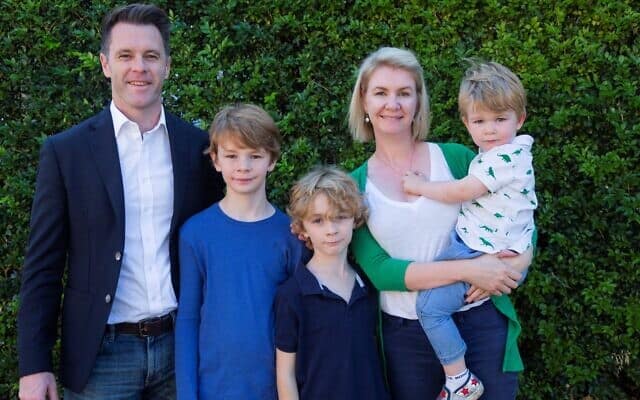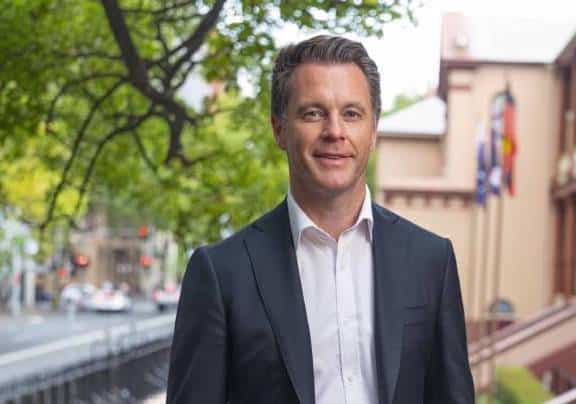Well into the final days and hours of his fight to become the next premier of NSW, Chris Minns is also managing a fierce battle to retain his super marginal seat of Kogarah, in the South of Sydney.
So trying to get even a short phone call with the leader of the Labor party, to discuss some of the key issues facing women that voters will be taking to the polls across the state this weekend, is difficult.
But we manage to snare such a call, as Minns was in a car between campaigning locations late on Thursday.
The goal was to discuss key concerns including women’s safety, homelessness, women’s health and representation, following our interview with Premier Dominic Perrottet from Friday.
This election is considered to be one of the tightest races ever seen in NSW. Key issues for the state include cost of living pressures, housing affordability, and a massive debate about gambling reforms and associated fallout from the powerful clubs lobby. On gambling, Minns’ committed to a 12-month cashless gaming trial of at least 500 machines, while Perrottet’s plan is to make cashless gaming mandatory across all machines by 2028.
First up, I ask about what’s been described as a “lack of gender equality vision” across all parties this election, by the Women’s Electoral Lobby.
Minns is quick to highlight his party’s achievements on women’s preselection and also noted that if elected his Cabinet would be the first in history in the state to be 48 per cent female (higher if you exclude him). While Labor just missed the fifty per cent mark for women’s preselections (at 44 per cent), it remains well ahead of Liberal where just 32 per cent of the field they have running across the lower house is female.
“Gender parity in the workforce is so important. If we can get that higher, narrow the difference between men’s and women’s participation – if we can get to parity, it will lift the state’s economic output by eight percent,” he said.

On addressing women’s workforce participation, Minns highlighted Labor’s plan on pre schools, including building 100 new pre schools co-located with government primary schools within their first term in government, as well as 50 new and expanded preschools at non-government schools. He says this will significantly boost the availability of places for families and also support the 2030 goal of universal preschool for every four year old.
Asked how the state will ensure such preschools can be staffed – given such skills are in critical demand right now and we’ve seen educators experiencing burnout and citing intentions to leave the profession – Minns conceding that it is difficult, but that they have committed to specialised programs to help, such as spending 22 million specifically on the childhood workers including on scholarships to attract young people as well as upskilling programs. “There are skill shortages across the economy. It’s not easy,” he said. On teachers generally, Labor’s plan includes to covert 10,000 temporary teachers to permanent roles, to reduce workloads and make salaries more competitive.
Women’s homelessness is a growing and an urgent concern in NSW, given the massive 48 per cent increase that was reported last Census when compared to the previous result. As a NSW inquiry heard in October last year, the face of homelessness across the state is increasingly looking like an older woman.
Minns said he’s concerned by the growing wait list for housing, as well as women in regional areas who are evicted from or priced out of homes and then struggle to find anything close by.
He believes Labor’s promise of Homes NSW, a new agency merging together three state departments to create one social and affordable housing entity, will help address the issue, as will moving to five-year funding arrangements for service providers working with the Department of Communities. “This change will mean that can do much better long term planning,” he said.
“This is in the early stages, but we’re also looking at build-to-rent programs in the South Coast and NSW Northern rivers, to encourage supply in regional communities. Both these areas have experienced national disasters, these programs will look for the best way of meeting supply.”
Minns described the prevalence of domestic and family violence in the community as “horrifying”. He believe’s Labor’s commitment to double funding to Women’s Health Centres will help to support this crisis, and he noted seeing up close the work these organisations already do. He also noted $14 million that will go to establishing a new specialist multicultural violence centre in South West Sydney, as well as allocated funding for the Sexual Violence Hotline.
So what does creating a “family friendly” state mean to Minns, in the context of work, a term used extensively by Premier Perrottet and also one used by Labor Prime Minister Anthony Albanese at the Federal level? “Family friendly in this context really means creating the conditions that allow – and really women here – to meet their professional goals while being able to raise a family,” Minns said.
Further, he cited a debate he’d had on Wednesday night in which a young woman called Brooke declared that she’d love to have a family, but that she and her partner can’t afford it so they don’t see it as possible. “That, there, is the definition of a crisis if that’s happening. A country has no future if we’re not thinking about the next generation.”
He added there are things the state government can do to be a “model employer” and create the best possible conditions for workers that private employers will look to emulate. “A lot of employers are desperate to ensure that the idea of being ‘family friendly’ isn’t just cliches, that it is actionable change. Real change,” he said.
As the father of three young boys, Minns highlighted the support of his wife Anna Minns on the campaign trail and taking on the load at home. A former prosecutor, Minns left that career to focus on her passion for sustainability, waste recycling and waste reduction. She set up a daily blog when her kids were little called Daily Lime, and later set up the Australian operations of TerraCycle, partnering with large brands to create new products from throwaway items. Women’s Agenda profiled Anna Minns at the time of building up TerraCycle, where she spoke about her husband working fro home while caring for their kids. That was in 2014, in 2015 Chris Minns won his seat.
But asked about family life at home right now – in the chaos of an election campaign, Minns said that he’s missing out on a lot at home. “To be honest, Anna is doing so much at home and I’m so lucky to have her. I am catching snippets of kids sporting games on WhatsApp, which can be disheartening. But I’m just so lucky to have Anna.”
Overall, in the quick conversation, Minns is keen to stick to his key policy areas and talking points. When asked about his fears for his own children, he uses the question to highlight education – a key platform for the Minns Labor campaign.


